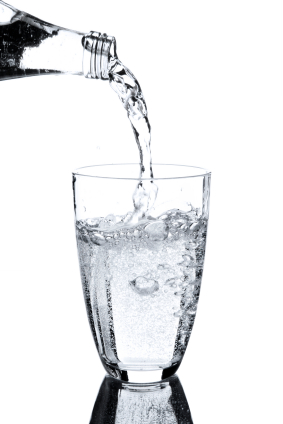You should always read labels. But you shouldn’t always trust them.
There’s one label that most people would never think to question. But you’d be wise to.
We spend more than $22 billion a year on bottled water.1 But according to a report by the World Wildlife Fund International, people may be getting more than just water in their bottles. And not in a good way…
Based on a survey conducted by the organization, 56 percent of people chose bottled water for taste. 55 percent said convenience played a role in their decision.
Most of us drink bottled water because we think it is the healthy alternative. But if you knew what was in your bottled water you may think twice.
“Bottled water may be no safer or healthier than tap water, while selling for up to 1,000 times the price,” the WWF report said.
So what’s in your bottled water?
Contaminants…
You’ve probably already heard about the dangers of the actual plastic bottles. They contain bisphenol A (BPA) and phthalates.2 These chemicals have been linked with different types of cancers,3 reproductive problems,4 and pose a serious threat to your overall health.
But besides that… there’s the actual water itself. Surely, that can’t be bad for you… right?
Wrong. And here’s why…
The Environmental Working Group tested 10 brands and found 38 low-level contaminants with an average of eight chemicals including disinfection byproducts (DBPs), caffeine and Tylenol, nitrate, industrial chemicals and arsenic, and bacteria.5
So OK, I don’t know about you, but we’ve never seen arsenic and bacteria listed on the labels. But what about those labels anyway? One says mineral and spring water, another glacial, and then another labeled pure and natural. But not so fast…
The water may not even be coming from those places. In fact, if we had to guess, they definitely aren’t. Companies don’t have to reveal the location of their source.6 And they are not required to provide water quality reports stating treatment methods and purity testing.
Most times your bottled water is simply filled with tap water! Pepsi’s Aquafina and Coca-Cola’s Dasani are nothing more than filtered municipal tap water.7
Basic tap water is tested numerous times a day and under constant monitoring.8 You may have received a call once or twice from your local water company advising you to boil water for a short period of time or to notify you if it contains more chlorine than usual. At least the calls let us know they are testing. That’s more than we can say about the bottled water producers.
If the water you buy bottled is what comes out of your faucet, you’re basically paying extra for a plastic bottle. And more chemicals.
The bottled water industry disagrees with these findings. But we wouldn’t expect any less.
The U.S. Food and Drug Administration is expected to regulate bottled water as a packaged food product to assure safety and quality.9 Stephen Kay of the International Bottled Water Association says they already do and “it meets specific standards of quality and safety from the source all the way though the finished product.”
But we don’t even know the source. They won’t tell us. And the lab studies don’t lie!
Obviously we can’t give up water. Our bodies need it to function.10 Water helps our respiration and keeps our body temperature normal. It also aids in cushioning joints and ridding our bodies of waste.
So what can you do? Obviously, tap water isn’t clean of contaminants either.
Your best bet is to filter your own water. Add a filtration unit to your faucet that will eliminate sediment, chlorine, metals, and chemicals. If you are going to buy your water, look and see where it is coming from, make sure it says on the label. And don’t forget to choose glass over plastic.
Like this Article? Forward this article here to your friends or family or Share on Facebook.
Tweetables:
– We spend more than $22 billion a year on bottled water. Click to Tweet
– Bottled water may be no safer or healthier than tap water, while selling for up to 1,000x the price. Click to Tweet
– Pepsi’s Aquafina and Coca-Cola’s Dasani are nothing more than filtered municipal tap water. Click to Tweet
References:
1 http://abcnews.go.com/Business/study-bottled-water-safer-tap-water/story?id=87558#.UKrZAhyB7Px”
2 http://jhsph.edu/news/stories/2008/goldman_schwab_bpa.html
3 http://ncbi.nlm.nih.gov/pmc/articles/PMC1570083/
4 http://web.colby.edu/cleanmakeup/meet-the-ingredients/endocrine-disruptors/
5 http://ewg.org/BottledWater/Bottled-Water-Quality-Investigation/Bottled-Water-Quality-Investigation-Test-Results
6 http://static.ewg.org/reports/2010/bottledwater2010/pdf/2011-bottledwater-scorecard-report.pdf
7 http://thewaterproject.org/bottled_water.asp
8 http://water.nationalacademies.org/basics_part_5.shtml
9 http://prnewswire.com/news-releases/consumers-vote-for-bottled-water-as-their-number-one-beverage-for-a-healthy-lifestyle-58544272.html
10 http://cdc.gov/nutrition/everyone/basics/water.html

